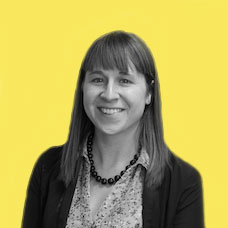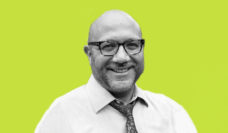Before he was State Representative of Haverhill in Massachusetts, Andy Vargas grew up in a large Dominican family. Vargas observed from an early age, through his own experiences and those of his extended family, that “public health is ingrained across every sector of society, from gang violence to housing to school nutrition to vaccines.” This awareness has cultivated his commitment to prioritize public health in policy.
Take gun violence for example. Vargas, a long-time advocate for gun violence prevention, rallied his legislative colleagues to encourage the state to approach the issue through both a public health and racial equity lens rather than the habitual public safety and criminal justice viewpoint. Massachusetts listened and has since established of a Center of Excellence for gun violence prevention that works with the Department of Public Health. The state has teamed up with the non-profit organization, UTEC, to develop a statewide grant program to fund community-based efforts to address youth gun violence. Vargas tied his Haverhill community closely with the initiative, establishing a UTEC site in town that has set up community resources for local youth such as case management, mental health counsellors, and employment connections.
“You have a lot of power, and you’ve got to use it.”
Representative Vargas’ commitment to public health was immediately apparent soon after he took office in 2017 as measles outbreaks threatened the US. Vargas was inspired to take up the public issues around measles after hearing from multiple families with immunocompromised children who were living in fear as an increase in the rate of religious vaccine exemptions jeopardized their children’s health at school. As Vargas explains, “The stories of my constituents compelled me to look at the research, look at the data, talk to the religious community, and come to a decision to file the bill.” Vargas introduced a bill proposing to remove a dated policy which allows parents to opt-out of vaccines when enrolling their children in public school based solely on personal beliefs. While complete removal of nonmedical exemptions has yet to pass, the Community Immunity Act, a part of the legislative effort to address low vaccination rates, strengthens the regulation of exemptions as well as equips school systems to track vaccination rates closely so that potential infectious disease outbreaks can be quickly identified.
Vargas’ latest public health mission is to tackle food insecurity through school nutrition programs. Breakfast after the Bell, one of the programs he is excited about, provides free breakfast to students in a way that removes the stigma of students having to arrive early to participate. By offering the breakfast after the bell, all students can participate without feeling embarrassed. Combined with another program, Community Eligibility Provisions, schools with high numbers of low-income students can now receive funding to provide free lunch and breakfast for all. Vargas exclaims, “In Haverhill, it’s been amazing! No questions asked, kids walk up, the stigma is removed because everybody can have free breakfast and lunch.”
The key to Vargas’ success? Hearing from constituents. Representative Vargas encourages his community residents to participate in local government, and stresses how much he relies on hearing from them. Listening to personal testimonies is what inspired him to take on the fight to improve school vaccination rates. “Had I not heard from those constituents, had I not heard their compelling stories, I don’t think the issue would have been flagged on my radar.” Whether someone is a public health expert aware of compelling evidence for policy change, a member of a community advocacy group passionate about their cause, or an individual constituent with a personal story, Vargas stresses, “You have a lot of power, and you’ve got to use it.”
Photo courtesy of Andy Vargas














